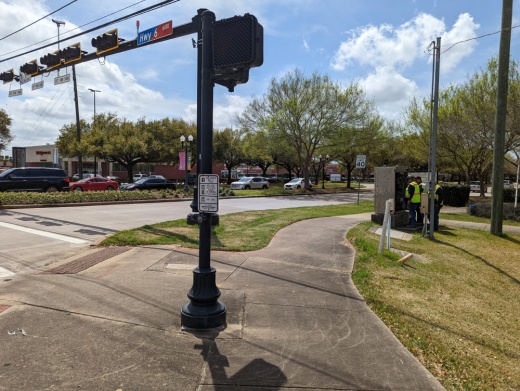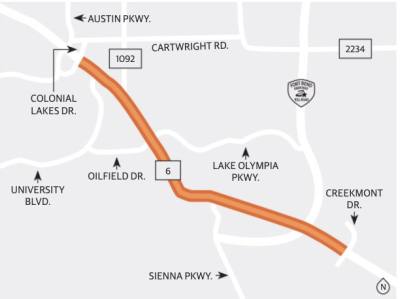The work, which started in early March, is designed to improve traffic progression and reduce travel time across that section of the highway, said Shashi Kumar, the city’s engineer and director of public works, during a March 7 City Council presentation.
With the signals retimed, the city anticipates reducing travel time by an average of 42 seconds eastbound and 39 seconds westbound, officials said. From Creekmont Drive to Colonial Lakes Drive, the average drive will now take 10 minutes and 11 seconds instead of 10 minutes and 57 seconds during morning traffic peaks. Similar results will be seen in the opposite direction during evening rush hour, according to the city.
“Those numbers don’t sound like a lot, but when you’re looking at over 60,000 vehicles that are saving that time, it starts to add up,” Assistant Engineer Jeremy Davis said during the meeting.
The work took place because the intersection at Colonial Lakes Drive faced over 50,000 vehicles per day in 2021, up from 26,000 10 years prior. Other intersections farther south along Hwy. 6 saw greater numbers from 49,600 vehicles per day in 2011 up to 60,800 in 2021, according to traffic counts recorded by Missouri City.
In addition, the city has needed to maintain additional traffic signals over the years. In 1998, Missouri City maintained five signals, but in 2022, the city maintains 63 signals, according to the March 7 presentation.
The signal retiming is only a short-term measure, however. The long-term approach will be to add additional lanes to that section of Hwy. 6, officials said at the meeting.
The approximate cost of the retiming project was $250,000, Kumar said in an email. The project was funded through the city’s fiscal year 2020-21 budget; however, the projected start was delayed to obtain more accurate traffic counts reflective of average traffic volumes, due to the pandemic potentially skewing data.






